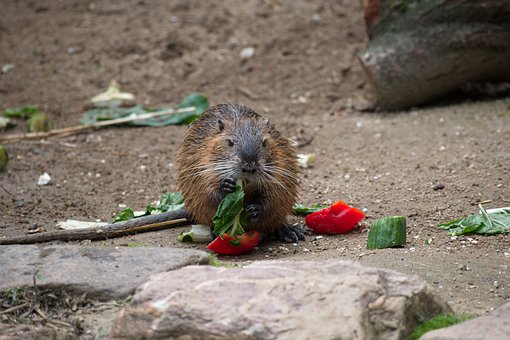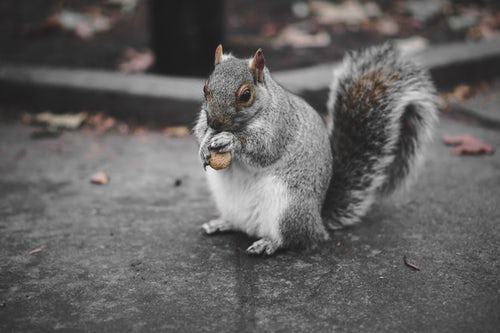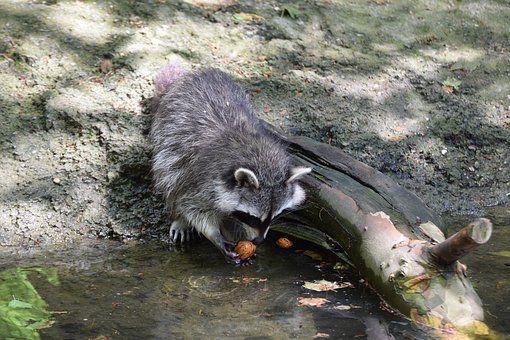Sometimes, people can be tempted to feed wild animals, like raccoons and squirrels, thinking they’re helping them survive. This is almost always a bad idea; wild animals aren’t pets and shouldn’t be treated like it. Feeding wild animals (especially with human food) causes trouble for both people and the creatures with whom we share our habitat.
7 Reasons to not feed wildlife:
1. Makes them comfortable around humans – Feeding animals makes them less fearful of humans. As animals lose this natural inclination, they spend more time near neighbourhoods and homes to find food. Because some wildlife can transmit harmful disease or bacteria to humans and pets (e.g. rabies and parasites), we shouldn’t invite them into our yards by providing a food source.
2. Establishes dependency – Animals who rely on humans for food become less self-sufficient. If you start feeding animals, then stop because you’ve run out of feed or gone on vacation, those who lost their survival skills will have difficulty foraging and possibly starve.
3. Changes natural behaviour – Animals fed by people tend to associate humans with food. This can lead to more aggressive animal behaviour, including garbage scavenging and — worse — attacking people. This also attracts too many animals into the area (including skunks and rats), leading to competition and increased tension among them.
4. Affects their health – An animal’s gastrointestinal system doesn’t process human food well, especially if they eat large quantities. Young animals are particularly at risk — most human foods don’t have the nutrients they need to develop. For example, waterfowl can develop wing deformities from eating bread, popcorn, and other “snacks.” Human-fed animals tend to rely on those people, making them less likely to forage and eat handouts instead.
5. Increases birth rates – In the wild, availability of food establishes normal birth rates. Feeding wild animals skews that balance, causing more animals to be born than the natural food supply can support. Increased birth rate also increases the number of nearby pests who may attack your garbage or infest your home.
6. Risks injury or damage – If you don’t keep a respectful distance from wild animals, you may be injured. Wild animals are more likely to inadvertently bite when you feed them (this is one way rabies can be transmitted). By attracting them to your property, you’re essentially inviting them inside, where damage will ensue (chewed walls and electrical cords, torn-up yards, overturned garbage and organics bins).
7. Endangers your neighbours – Well-intentioned people who feed animals peanuts don’t realize that wildlife carry these nuts and their shells into other people’s yards. A small child with a severe nut allergy could unwittingly touch something in their play area or sandbox and go into anaphylactic shock.
Feeding wild animals may seem like a kindness, but it is best (for both the animals and yourself) to leave them to their own devices. Avoid injury, damage, and hassle by not inviting wildlife into your immediate surroundings.
For humane removal of any wild animals in the home, under the porch, or in your yard, contact Liddle Rascals Wildlife Control. We specialize in pest removal (including raccoons, birds, and bats) safely and affordably.
Expert Animal and Wildlife Removal in the Greater Toronto Area
We are available 24 hours a day, seven days a week.
Call us at (416) 356-5886 or contact us online.








Leave a Reply
You must be logged in to post a comment.